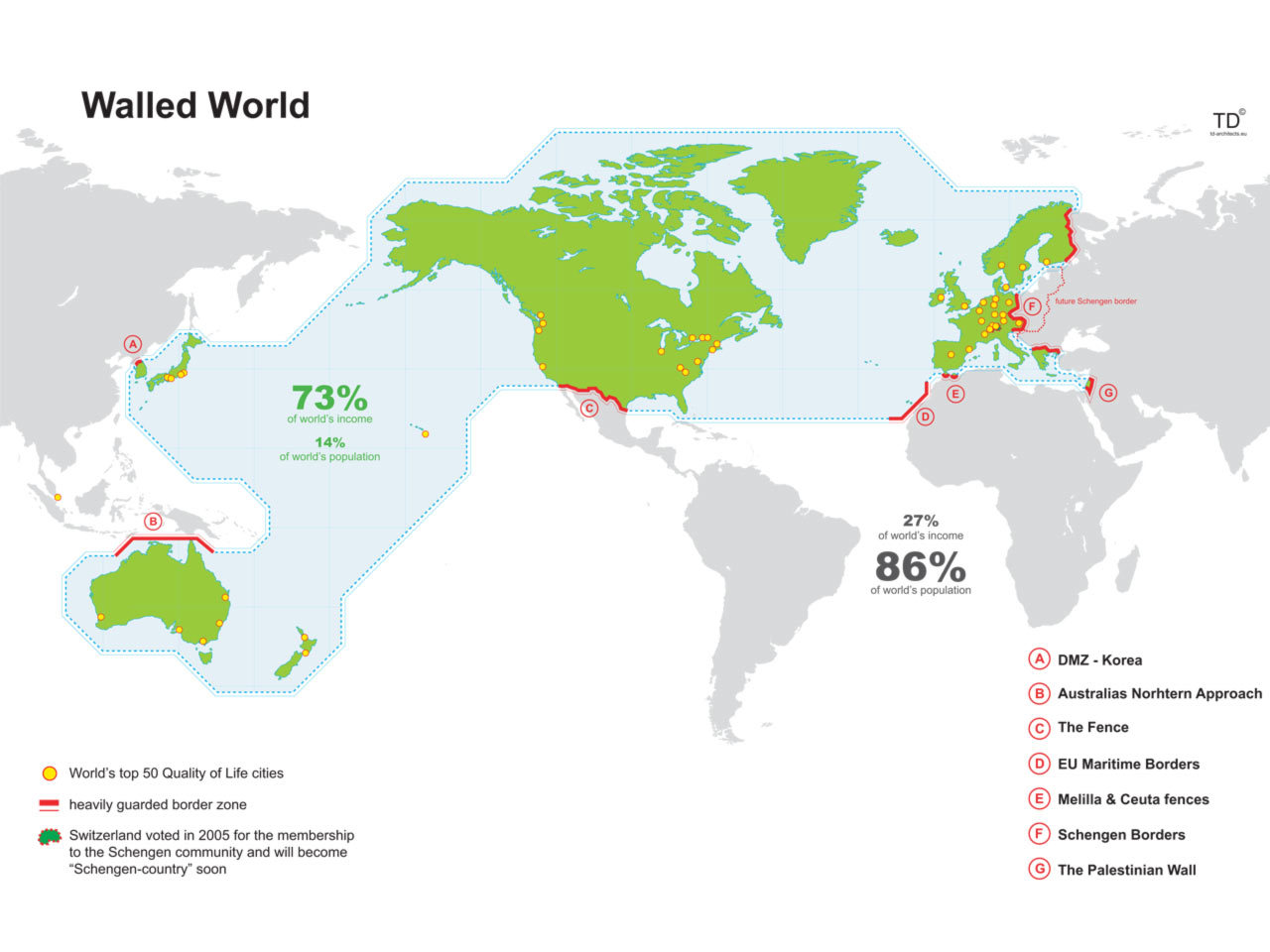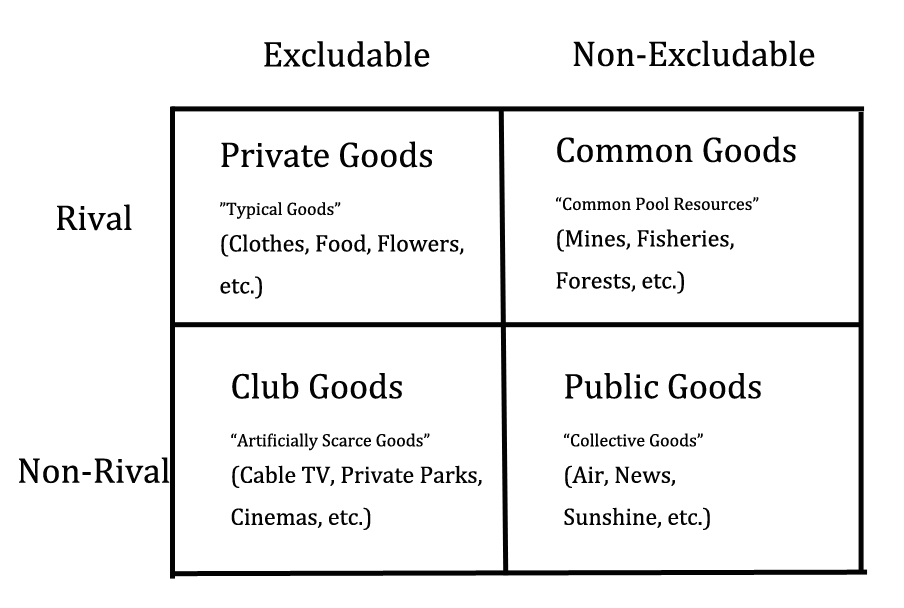I’m not generally supportive of term limits for legislative office. Nobody’s forcing us to re-elect incumbents. Why limit our choices? Seniority in itself may in some cases be a contributor to some politicians’ lack of commitment to the public interest, but surely money is a much, much larger contributor. I worry that calls for term limits tend to work with, rather than against, the conservative idea that the public sector (which includes politicians) is the main problem. It is not.
Author: Lorraine Lee
-
The “first world”
Of them to whom much is given, much is expected. Honestly, I think the United States should be kicked out of the first world (or “developed world”), stupendous per-capita income notwithstanding. We have a first-world level of economic development but a well below first world level of social development. That should be reflected in international discourse. It would be good if journalists and the like use the term first world (if they use it at all, I know it’s problematic) to refer to the social-democratic world, especially when speaking of the first world as a group of nations characterized by high quality of life.

This is of a piece with my belief that public policy is informed perhaps too much by economics, but certainly far too little by sociology. It may be that economics is a science, and that the laws of economics are self-enforcing and non-negotiable, but if social sciences count as sciences, that should include sociology. As sure as “no such thing as a free lunch” is a law of economics, “no justice no peace” is a law of sociology. If so (and I believe so), political projects (such as neoliberalism, or if you prefer, ideological private sector preference, or insistence on “separation between economy and state”) that insist on disregarding such fundamental laws will (and should) fail miserably. Burn, baby, burn, as far as I’m concerned.
-
Against market urbanism
A city with virtually no for-profit sector is not the hill I want to die on in the short term. What I’m absolutely sick and tired of is cities pinning all their hopes on becoming “innovation hubs” or some other buzzphrase of rah-rah entrepreneurism. I would hope even the mildly left of center see that trickle down economics is a trap. The idea that the success of the few is a prerequisite for the survival of the many must, to continue the Reagan paraphrasing, be consigned to the ash heap of history.
-
Reverse engineering is not a crime
The law has more respect for trade secrets than it should, and companies have come to feel entitled to them. I respect intellectual property (even though I see it as a fundamentally broken institution in need of a major overhaul) but I don’t consider trade secrets a legitimate form of intellectual property as I do copyrights, patents, and trademarks. Patents, in particular, require disclosure of what is being patented and how it works.

An Open Source Hardware (OSHW) logo proudly displayed on the silkscreen of a blank project PCB, the uSupply by EEVblog (CC BY-SA 3.0) If information about how technologies work is a secret, at some point society will devolve into a literal cargo cult. Reverse engineering, like deep linking, must not be a crime, or we are doomed to that fate.
-
Unemployed need not apply
‘explain the gap in your resume’ is soooooo infuriating cos maybe i was just vibing? maybe something catastrophic happened? why do you have to share intimate personal details to justify non-productive/non-labouring periods of your literal human existence omg
— Sukhnidh ⚆ _ ⚆ (@skhndh) November 17, 2020
Absolutely. A pause in moneygrubbing is unassailable evidence of something, whether that something is membership in the leisure class, having squirreled away a nest egg of “fuck you” money, ability to tolerate material discomfort, outside support. There are other plausible explanations, but all point to non-desperation, and employee, after all, is a French word that literally means “used.”
Although it’s right wing propaganda pushing the corrupt union narrative, I think there’s something to the film “On the Waterfront,” where borrowing from the loan shark is a prerequisite for getting placed on assignment by the corrupt union hall. I’ve always wondered whether the real reason employers assert entitlement to applicants’ credit histories isn’t the stated reason of “responsibility” but the more plausible variable I’ll call “indenturability.” In terms of the utility theory of the economists, there is every reason to believe the supply curve for labor has the steepest slope “at the water line,” or the line between solvency and non-solvency. Solvency as incentive gradient sweet spot was also explored in passing by RAW:If one of the employees in his factories showed initiative or talent, Wing Lee Chee noticed, and that man or woman was quickly promoted to a position of responsibility and solvency. He was no xenophobe; this policy applied even to Japanese, Hindus, and the wretched Unistat refugees.
-
The monetization of the web is reaching paperclip levels
As is now my editorial policy, comments I make in $ocial media that add up to more than a couple of sentences get reposted to the present decidedly noncommercial (anticommercial) venue. In that spirit, I offer a copy of this reply to youthdecay’s comment in Reddit’s /r/breadtube:
It’s true that everybody be monetizing, and it’s also true that much activity simply can’t be done on a non-monetized basis, and it’s also true that creators deserve to be paid. So whether I should have adblock anyway is a debatable ethical question. I don’t use ad blockers, but I do use a tracker blocker (Privacy Badger) and of course I get accused of using an ad blocker by those websites in the “ad blocking is stealing” camp. Apparently at least some parts of publishing (if not creatordom) feel entitled not just to advertising, but to highly targeted advertising, a goalpost move I refuse to go along with. As for indie creators monetizing, I’m really not economically successful enough to patreonize more than a very small number, but my attitude about it is pretty “more power to them,” in spite of my open source and anti-DRM stands, given that we still have to live under capitalism. In early 1990s Usenet, the words advertising and spam were used virtually interchangeably. In the late 1990s Web, it was right and proper to promote your online activities, but there was a level of aggressiveness at which such promotion was considered a “shameless plug.” It seems that starting with the 2008 recession, any hint of shame has gone out the window, the online economy resembles a carny show more than an economy in any other sense, and everything non-monetized (like blogging in the traditional sense) is utterly extinct, and everything else is monetized absolutely to the hilt. Call me old fashioned (as I am after all old) but when a YouTube channel has YT ads, sponsor ads, AND merch, about all I can say is “gotta love the hustle,” which I really do mean as a compliment, but I’d like to believe that breadtube, seeing hustle as at best a necessary evil, prefers a more lowkey approach to hustle.
-
Is economics a science?
There will always be paying gigs for those who speak power to truth. I need occasional reminders of this fact, so I appreciate it when people point out that a large amount of economic research is essentially corporate-sponsored. Sometimes I’m tempted to question whether I’m some kind of science denialist because I long so plaintively for the so-called laws of economics not to be true.
-
Is journalism a merit good?
Obviously the very concept of a nation-state having an official news agency, let alone a government-run news outlet, literally screams propaganda, and of course I therefore take with a grain of salt news broadcasts from CBC (Canadian Broadcasting Corp.) or BBC, or the shortwave-radio-like offerings from DW (Germany) and NHK (Japan) seen on the PBS-adjacent World Channel. While I don’t think of them as unbiased, I nevertheless find it refreshing to watch these broadcasts. It’s like watching commercial TV news, but minus the breaking news klaxon, the promo content dressed up as news stories, the celebrinews, the “human interest” and other clickbaity “stories,” and of course the furniture store commercials designed to turn my television into a strobe light.

A Table to show the features of different types of goods
Crazyjungle@wikibooks, public domainBringing news to other media such as the Internet presents similar challenges. Virtually all online news outlets, whether or not they also have a “legacy” media presence, are playing the clickbait game and the chum game, and are also very heavy users of aggressive adware and spyware (compared to commercial websites whose purpose is not journalistic).
I’ve become more convinced with each passing year that journalism, especially serious journalism, is a merit good, virtually destined to be under-supplied by any market. You can paywall it, but you’d have to distribute it with a non-disclosure agreement in order to enforce a no-freebies policy when it comes to the simple dignity of being reasonably informed about current events. There’s no monetization model for that (so far, knock on wood). Government-sponsored news outlets, as I said above, have production values I much prefer, as well as a more appropriate (IMO) sense of what is and isn’t newsworthy, but of course can’t reasonably be said to be “independent.”
Science fiction writer David Brin, in his novel Earth, envisioned a sort of “individual mandate” for news, where each citizen was obligated to have a subscription to some news service (of which there were >1 available, for antitrust’s sake I guess). I don’t like the “individual mandate” (i.e. Romneycare) concept very much, but one thing you want from a news outlet is independence, so perhaps better to create the formality of the news outlet creating a product for sale, while also creating the assured existence of a paying audience to go after a share of.
-
Appropriate technology

picture: JD Hancock
licence: CC-BY 2.0I’ve wasted most of my life so far trying to figure out how to have a “tech” career w/o having a “defense” career, I’m starting to think the world is arranged in a way so business, let alone consumers, have to wait in line behind military when it comes to technology. My fondest dream is of a future in which the most advanced technology in existence is in civilian hands (where defense contractors don’t count as civilian hands). Maybe Hobbes or Original Sin or whatever is right and that would literally mean the end of the world. That would make me even more for it. If Hobbes is right then life isn’t worth living anyway.
Appropriate is a verb, btw.
-
Unsubscribe as a service
Posted the following as a comment on What is the difference between IaaS, PaaS, SaaS en UaaS? on the website of a company called Nucleus. Re-posting it here, because re-posting to the present blog is now my standard operating procedure, and particularly because as a comment there, it’s awaiting moderation, so I figure if I don’t stash a copy somewhere, it could conceivably be lost to the sands of time. Here it is:
Uptime as a service sounds to my ears like a rather cynical euphemism for some kind of a “fast lane” for sale in an environment in which “downtime as a disservice” is one of the antifeatures designed into the default configuration. Admittedly, I’m somewhat jaded, believing as I do that (in the arena of informational goods, anyway) all monetization stems from value subtraction. I guess services in the -aaS category as becoming as cliche as whimsical C-level executive titles being used as some kind of happytalk statement. I also must confess that the way I found this page is by searching the string “uaas”. Seems right and proper that this should be in such a search result, but what I was trying to find out was whether it had yet occurred to anyone else to use “UaaS” as an abbreviation for “unsubscribe as a service,” something that (in effect) has hit the TV airwaves here in 2021 in a deluge of ads, with seemingly (at least) dozens of vendors offering, in effect, One Subscription To Rule Them All.